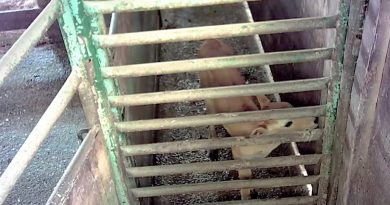Letter regarding the Culling of Coyotes in Vancouver’s Stanley Park
Image by RENE RAUSCHENBERGER from Pixabay
Dear Decision Makers,
PLEASE . . . . consider your ineffective decision to trap and kill coyotes in Stanley Park. It seems officials just think culling a species is the only answer if there is a human related conflict with our urban wildlife. Have you not learned this is ineffective and can have devastating consequences down the road for removing a species from the eco-system? And there can be wider and unexpected consequences of trying to cull a species.
There are numerous examples of ill thought-out programs to cull wildlife all over the world ! An example is prominent in our own province – all the Gulf Islands and Lower Vancouver Island were culled of predators – bears, wolves, coyotes and now the deer have mushroomed to a severe overpopulation. This has, in turn, resulted in a decline in the songbird population. You can see why from this article below . .
http://www.pacificanimal.org/news/Soaring%20Deer%20Numbers.pdf
Killing a nuisance predator is NOT the answer. And because our human populations are increasing and increasingly impacting our wildlife species we MUST find non-lethal ways of managing to co-exist. The fact that humans have food concession stands all over the park and then food scraps and wrappers are left will be a CONSTANT source of food for coyotes for ever. Reducing the amount of food and garbage that humans have used in the park is a first step. Picnics could be allowed but all garbage must be picked up and put into coyote proof waste baskets. We just need a beautiful natural place to walk and enjoy the scenery. We don’t need food spilled all over a natural area. It destroys the ambience. Richmond’s Nature Park doesn’t allow food stands or picnics. The Park’s Board and officials need to get Stanley Park back to its natural state.
https://www.richmond.ca/parks/parks/naturepark/about.htm
THE VALUE OF NONLETHAL METHODS
- Proactive — prevent losses before they occur
- More humane
- Offer long term cost effectiveness
- Less harmful to ecosystems
- Allow predators to control rodent/rabbit populations
- Depending on types used, can provide long term 24/7 protection
- Often more cost-effective
If our government listens to a number of various, well-informed organizations, non-lethal methods can be employed to minimize coyote/human interaction. Humans have encouraged coyote action here by not displaying proper environmental controls and officials MUST step in and enact and enforce better management practices that don’t include killing a species. Killing will never end if you don’t.
Ms. L. Simon




